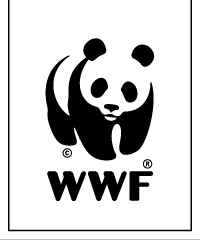Article 24 of the Greek Constitution guarantees the protection of forests:
The protection of the natural and cultural environment constitutes a duty of the State and a right of every person....Matters pertaining to the protection of forests and forest expanses in general shall be regulated by law. The compilation of a forest registry constitutes an obligation of the State. Alteration of the use of forests and forest expanses is prohibited, except where agricultural development or other uses imposed for the public interest prevail for the benefit of the national economy.
Although every Greek citizen and the state itself recognize the value of forests, this precious natural resource and wealth is under constant and unrelenting pressure and degradation. The standing legal framework and the lack of cadastre and forest maps encourage the encroachment of forest land.
The devastating wildfires in the summer of 2007 clearly demonstrated the absence of a national environmental policy and the inadequacy and lack of coordination of forest protection and firefighting mechanisms, the lack of political will and the—until that time—generalized indifference of the public opinion.
In order to preserve the country’s forest wealth, WWF Greece intervenes in policy making with fully documented proposals. In 1998, it developed a series of proposals to improve the relevant institutional framework and establish the legal protection of 32 valuable forest areas, while in 2000 and 2006 it fought alongside many other organizations against the proposed revision of Article 24 of the Constitution, which would downgrade forest protection.
In May 2008, to answer the need to upgrade the country’s forest protection system, WWF Greece presented a proposal entitled A Sustainable Future for Greek Forests (in Greek), which described an up-to-date and integrated national forest protection system. Moreover, a report entitled The Uncertain Future of Forests (in Greek), which was released in June 2010, outlined the state of Greek forests during the past 20 years, underlining the major degradation issues. In June 2009, acknowledging the citizen’s key contribution to preserving our natural wealth, WWF Greece presented a proposal concerning the active participation of volunteers in forest protection (in Greek). Since 2007, WWF has been documenting the ecological consequences of forest fires by satellite and by on-the-spot examinations and is to date the only institution to do so.
It continues to intervene in a variety of forest policy issues, including the restructuring of forest services, the protection of forests against fire, the proper and sustainable management of forests, as well as illegal logging, encroachment and changes in land use. It also intervenes legally or administratively regarding the degradation of important forest ecosystems.
Share this



